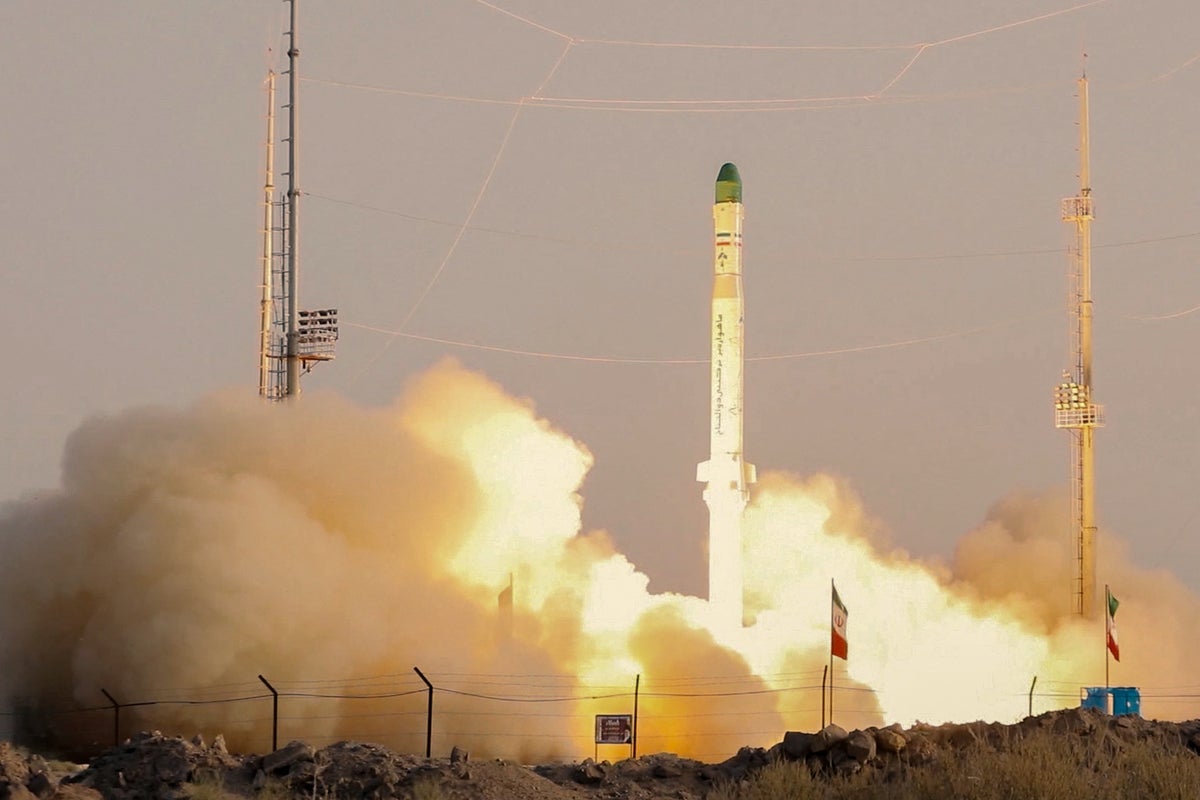
Iran has launched a solid-fueled rocket into space ahead of the expected resumption of stalled talks to revive the failed 2015 nuclear pact.
There have not been any clarifications if the test was successful compared to previous efforts.
The second test of its Zuljanah satellite launcher on Sunday is seen as Tehran’s effort to irk Washington after it claimed such long-range ballistic technology could also be used to launch nuclear warheads.
Iran’s state media aired dramatic footage of the blastoff, although it was unclear when or where the rocket was launched. The launch announcement was made after satellite images showed preparations at Imam Khomeini Spaceport in the country’s rural Semnan province, where Iran had registered several failed attempts to put a satellite into orbit.
“The third development phase of the Zuljanah satellite launcher will be based on a combination of information gained during today’s launch,” a defence ministry spokesperson told state TV.
The nation had earlier said it planned more tests of the satellite-carrying rocket which was first launched in February 2021. Named after the horse of Imam Hussein, the grandson of prophet Muhammad, the 25.5m-long rocket is capable of carrying a payload of 220kg and can gather data in a low-earth orbit, said a defence ministry spokesperson.
The White House has criticised Tehran’s move as “unhelpful and destabilizing” ahead of expected talks to end a months-long impasse to secure the 2015 nuclear pact.
Washington said it was committed to using sanctions and other measures to prevent further advances in Iran’s ballistic missile programme. Last year, the US raised an alarm over the successful launch of the domestically-made satellite launcher which Tehran said was aimed at achieving its “most powerful rocket engine”.
Sunday’s rocket launch comes a day after EU’s foreign policy chief Josep Borrell traveled to Tehran in a push to revive negotiations over the nuclear programme. According to reports, Mr Borrell said nuclear talks would resume in an unnamed Persian Gulf country in the coming days.
Following the EU’s push Iranian foreign minister Hossein Amirabdollahian said: “We are prepared to resume talks in the coming days. What is important for Iran is to fully receive the economic benefits of the 2015 accord.”
Earlier in March, the nuclear pact appeared close to being revived, but talks have since bogged down over Tehran’s insistence that Washington remove the Islamic Revolutionary Guard Corps (IRGC), its elite security force, from the US Foreign Terrorist Organization list.
In 2018, former president Donald Trump had pulled out of the deal, under which Iran agreed to curbs on its nuclear programme in return for relief from economic sanctions. Instead, Mr Trump reimposed crushing sanctions and Iran retaliated by beefing up its nuclear work.







